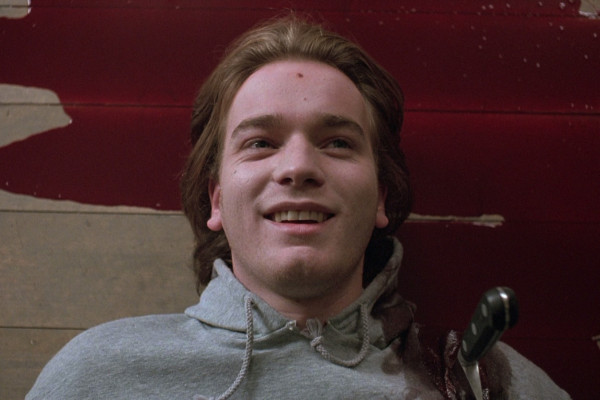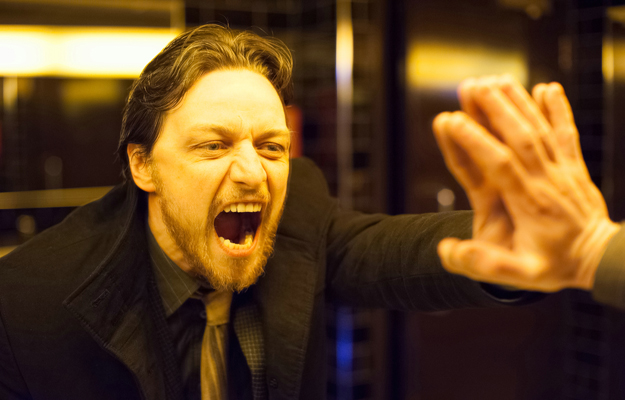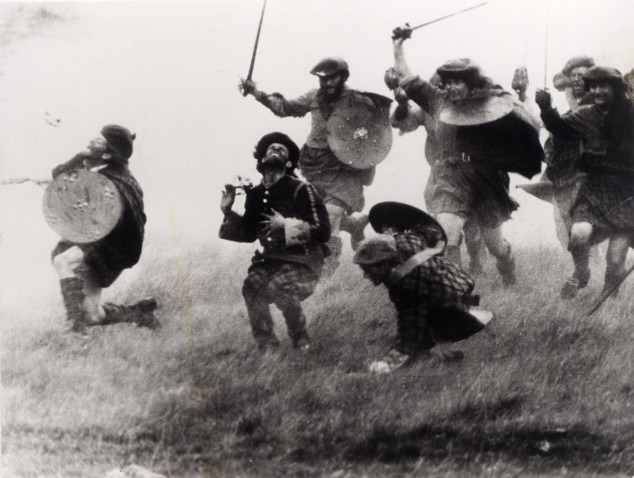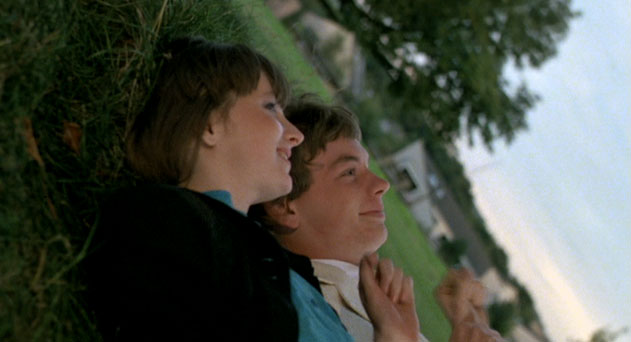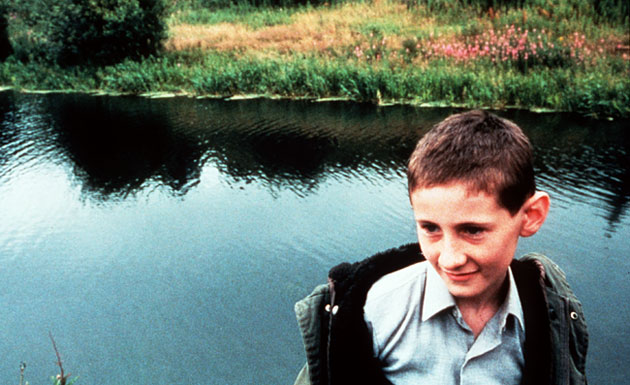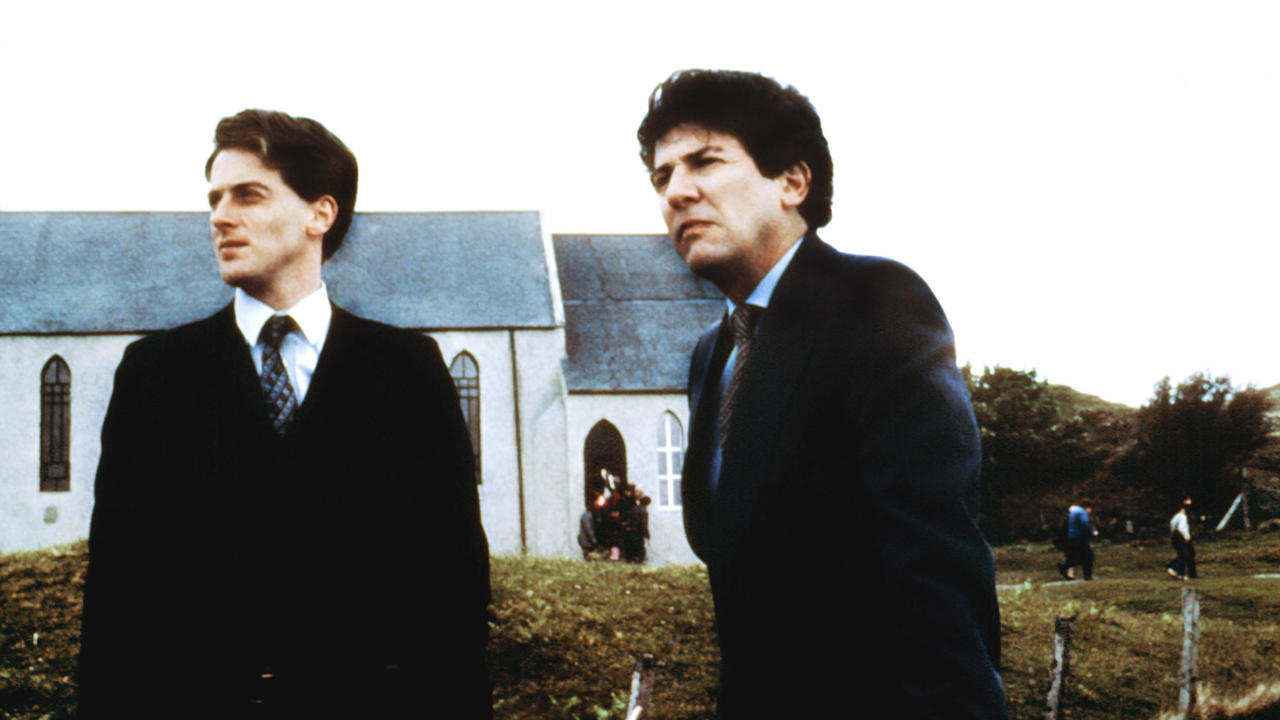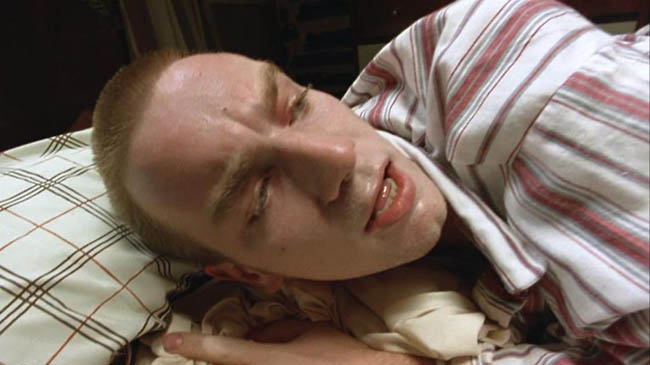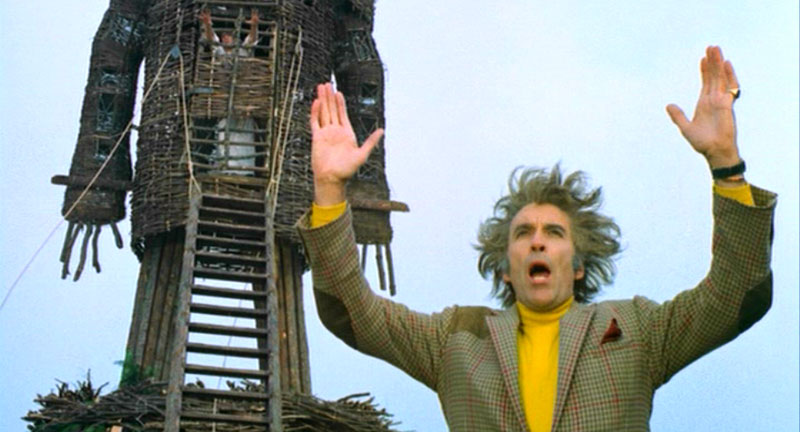8. Shallow Grave (1994)
Few debuts have the confidence and beat Danny Boyle’s cracking starter exudes. Boyle himself has compared the film to that of Tarantino’s nineties films. Comparisons are worthy, “Shallow Grave” has a quirky narrative style to it more traditionally found in American indie cinema, albeit with a dark humour that is unequivocially European.
What happens when a happy go lucky journalist, a coquettish doctor and an introverted accountant find themselves with a dead body and a sack full of cash? Paranoia, euphoria and disorientation enters their apartment in a film that cares as much for genre labeling as it does for mainstream cinema.
The three leads are excellent, Christopher Eccleston’s social anxiety is immersive, even if his Scottish accent seems a little staged at points, Kerry Fox’s allure is both accessible and ethereal, while Ewan McGregor’s narcissism hints as better performances to come, one of which will appear later in this list. Glasweigian writer John Hodge appears as a police detective, steering the film between esoteric comedy and dark surrealism.
7. Filth (2013)
A chameleon thespian, James McAvoy has played many remarkable characters in his time, though none of them have been as perplexing as PC Bruce Robertson, a loathsome individual who still keeps the audience´s captivation throughout the film´s ninety something minutes.
A detective sergeant situated in Edinburgh, Robertson upholds the law in his job, but outside of his working hours he shows himself as a man who indulges in heavy drinking, drug taking sexual harassment and his so called games, a selection of punishments he himself selects for his colleagues. The film follows his periodic timetable, as he walks around Edinburgh with a swagger indelibly his own, his catchphrase “same rules applies” attached.
Less of a conventional narrative piece, and more of a penetrative character study, “Filth” has a main person whose utter contemptibility makes him the peripheral delight of its audience. Much like “A Clockwork Orange”, “Filth”’s adherence to the wild and excessive makes it a divisive watch. For those who can placate their conscience, the film succeeds as entertainment par excellence.
6. Culloden (1964)
When the narrator opens the ´documentary´ with the statement that the eponymous battle “tore apart forever the clan system of the Scottish Highlands”, one knows the following events aren´t everyday tea and toast affair. A strong documentary, the end result won a “Society of Film and Television Arts” T.V. Award for Specialised Programmes in 1965. The film bases itself on The Battle of Culloden, one of the more pivotal battles that took place on British soil.
Thirty years before Mel Gibson roared ´freedom´, Peter Watkins film gave audiences an insight into the struggles and battles fought to protect the cultural integrity of The Gaelic Highland Clans. “This was the 1960s, and the US army was ‘pacifying’ the Vietnam highlands. I wanted to draw a parallel between these events and what had happened in our own UK Highlands two centuries earlier” he later reflected. Such ferocity is visible within this ´factional´ drama, as dirt, blood and sweat are filmed with vigor, a battle film par excellence.
A pioneering example of the power of documentary film-making, Watkins would continue to make ‘docudrama’s, winning an Oscar for “The War Game”, a film spiritually attached to his mid- sixties Scottish Clan War film.
5. Gregory´s Girl (1981)
“She´s absolutely gorgeous” says teenager Gregory Underwood (John Gordon Sinclair) about new football player Dorothy (Dee Hepburn), an indictment of the prosaic speech used in Bill Forsyth´s charming coming of age drama.
A charming, innocuous little film, its charm comes from its wit, both flippant and accessible, rather than ascerbic and sharp. Dorothy, the new football player on an otherwise male dominated team, finds herself the desire of her team mates. Mustering up the courage to ask her out, Gregory finds himself disheartened when she neglects to turn up for their rendez-vous. Fate intervenes as he finds Dorothy and her friends have arranged another date for him with Susan (Clare Grogan), a girl Gregory grows more and more attrcated to. “It is just how girls work” he is told.
Using a number of actors from the Glasgow Youth Theatre, giving the film a certain authenticity, many of the actors were re-dubbed with softer Scottish accents for an American release. The trick must have worked- Entertainment Weekly placed it 29th on their “50 Best High School Movies List” in 2006.
4. Ratcatcher (1999)
There’s always a flipside to every coin. Where there are bagpipes and kilts and haggis, on the other page there is unemployment and grimy tenements. Lynne Ramsey’s debut shows a Glasgow that veers far more to the latter side, made all the more tragic due to its standpoint from a twelve year old.
As said child bears the guilt of a drowned boy he could have saved, dustmen strike over their dissatisfactory level of payment and impoverished children play with mice as a way of passing their copious amount of time. The film follows James Gillespie, William Eadie, as he comes to terms with his ever pending life as a lower class vagabond.
Heads up. “Ratcatcher” is not for the fainthearted. Light hearted escapism it is not, but the gritty kitchen sink drama Ken Loach himself would steer from. Rotten Tomatoes delicately claim that “critics find ‘Ratcatcher’ to be hauntingly beautiful, though its story is somewhat hard to stomach.” They got that one right!
3. Local Hero (1984)
If Gregory´s Girl showed the finer qualities of Scottish natives, Bill Forsyth’s follow up “Local Hero” showed the finer qualities of Scottish landscape, a style BBC serial ´Monarch of The Glen´ undoubtedly nicked a shot or two from.
The film centres around misanthropical American Mac (Peter Riegert) as he arrives to a remote Scottish island on behalf of an American Oil Company. Somewhat aware of the perfidious nature of the local inhabitants, Mac’s initial cynicism is alleviated after fishing trips, highland walks and night time ceilidh’s, as he slowly but surely falls for the island´s idyllic charm.
It´s a beautiful film of cultural envy. The Scottish islanders have an undeniable envy of what they’ve heard about American material wealth, while American business men Mac and boss Felix Happer (Burt Lancaster, in his last great performance) find themselves in awe of the natural beauty the islanders have at their footsteps.
Forsyth’s film is a charming family film, mature enough for adults to enjoy, without placating younger viewers. The film’s soundtrack remains a high point of Mark Knopfler´s soundtrack career, while a bouyant Peter Capaldi is an asset to the film’s cheerful tone.
2. Trainspotting (1995)
It’s fair to say that the film has become a bench stone of British stone of British cinema since its release in 1996, Ewan McGregor´s famous “Choose Life” monologue quoted and dissected in University theses and imitated and parodied by stand-up comedians. Based on Irvine Welsh’s best novel, ‘Trainspotting’ proves a career best from Ewan McGregor and Danny Boyle; neither the star nor director have equalled their work on this film, despite some impressive work from both in the twenty years since this drug fuelled extravaganza.
The film follows five people in the late eighties experiencing the highs and lows of drug use. Opening with a frenetic chase down Edinburgh´s Prince´s Street and ending with McGregor´s delicate lilt pointing to pastures newer, “Trainspotting” is a classic of nineties cinema, at once funny, at others astonishingly traumatic; a scene in which Dawn (Kelly McDonald)’s baby is discovered dead, much to Sick Boy’s (Johnny Lee Miller) audible and indelible shock will likely leave audiences sick or emotionally shattered.
McGregor immersed himself in the role as a heroin addict, shedding weight, shaving his hair, studying heroin addicts and briefly considered injecting himself with heroin, before common sense prevailed and he merely played the part of a drug addict. McGregor brings wit, charm, vigour and unease to Renton, often in the same frame. Although set in Edinburgh, the film was primarily filmed in Glasgow.
1. The Wicker Man (1973)
A visual tour de force, the film’s haunting close of “Summer Is Icumen In” shows the bloodcurdling fear from Celtic ritualism in a manner never equaled. Christopher Lee himself called the film the best of his career; so impressed with the screenplay, Lee agreed to appear in the film for free. It´s nigh on impossible to imagine anyone else playing the premediating Lord Sumerisle with the depth he brings to the character.
A deeply religious policeman investigates the disappearance of an innocent schoolgirl, What starts as a detective tale turns into a couple of soul wrenching days of debaucheric hedonism, mindless sadism and bygone ritualism as Howe (Edward Woodward) discovers this innocuous Scottish island is in fact a commune of Pagan followers, as he draws himself more and more into a conflict over religion and sanity.
Anthony Shaffer’s screenplay came into fruition after he picked up a copy of David Pinner’s “Ritual”, a crafty work about a Pagan Sacrifice. Acquiring the rights, Shaffer and director Robin Hardy took the murder mystery elements found in the book, mixing it with musical numbers (ones Paul Giovanni composed, inspired by folk songs of old) and dark humour.
The result? A psychological drama so intense, a musical film so immersive and an island film so enthralling, it takes viewers from the comfort of their seats to the realms of absolute darkness.
There are too many strong points in this film to write about without taking up the rest of the article, but a film that features the sensous and erotic “Willow´s Song”, one of the more visceral dances released to date, the embellished and detailed representation of May Day celebrations and an ending fierier than the burning statue it emblazes should never be ignored. Cinefantastique famously called the film “The Citizen Kane of Horror Movies”, a fine label, but one that limits the other great facets the film offers. A true classic.
Author Bio: Eoghan Lyng is an Irish man, who studied English and Gaeilge at University College Cork. Currently a TEFL teacher, Lyng spends his spare time thinking and writing about movies when he´s not teaching the Three Conditionals. He can be found on Twitter @eoghanlyng.
